One of the Trump Administration’s first acts upon taking the US Presidential Office was to declare a “national energy emergency”.
“We need a reliable, diversified, and affordable supply of energy to drive our Nation’s manufacturing, transportation, agriculture, and defense industries, and to sustain the basics of modern life and military preparedness”, the executive order reads.
“Caused by the harmful and shortsighted policies of the previous administration, our Nation’s inadequate energy supply and infrastructure causes and makes worse the high energy prices that devastate Americans, particularly those living on low- and fixed-incomes”.
“An affordable and reliable domestic supply of energy is a fundamental requirement for the national and economic security of any nation”.
“The integrity and expansion of our Nation’s energy infrastructure—from coast to coast—is an immediate and pressing priority for the protection of the United States’ national and economic security”.
“It is imperative that the Federal government puts the physical and economic wellbeing of the American people first”, the order reads.
The Trump Administration wants to boost US oil and gas production and lower costs for US consumers.
“America will be a manufacturing nation once again, and we have something that no other manufacturing nation will ever have, the largest amount of oil and gas of any country on Earth, and we are going to use it”, President Trump said in his inauguration speech. “We will drill, baby, drill”.
President Trump’s announcement comes amid the backdrop of an existential energy crisis in Australia, which requires the declaration of our own national energy emergency.
Australians once enjoyed some of the world’s lowest gas and electricity prices thanks to our abundance of coal and gas.
This advantage has been given away by policy failure, which now sees Australians paying some of the world’s highest energy costs despite being the world’s largest coal exporter and the second-largest natural gas exporter.
This month, the ACCC warned that Australia’s southern states—namely, NSW, Victoria, and South Australia—will experience gas shortages over the winter months.
This shortage will come as East Coast Australia exports around three-quarters of its gas, mainly to China.
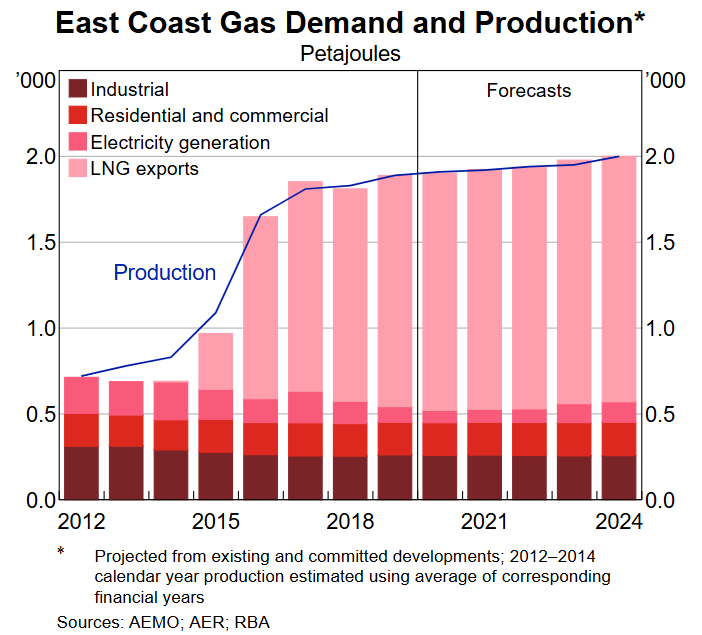
China also buys most of Australia’s coal, and its emissions have grown nearly exponentially.
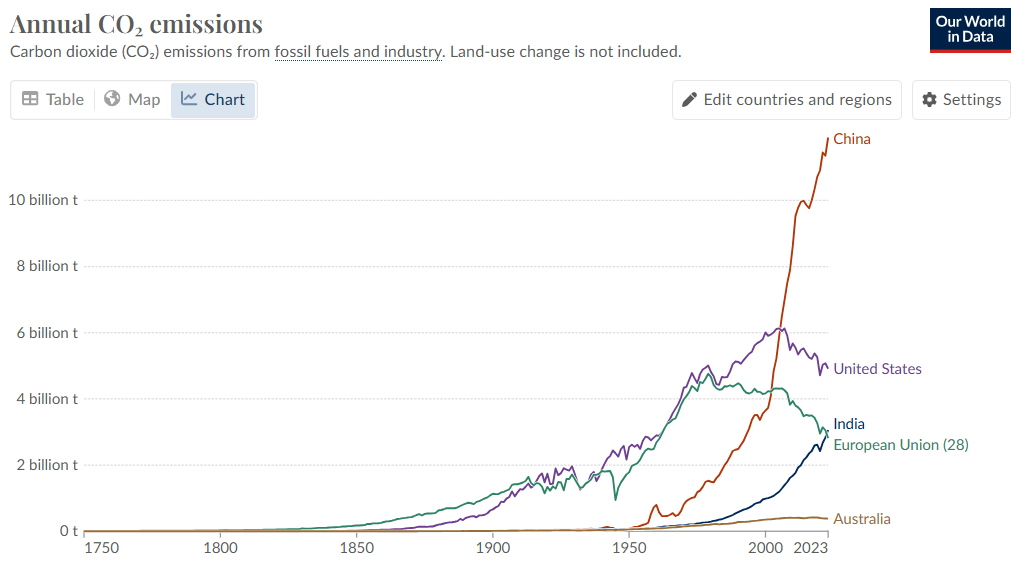
Despite the dire gas forecast from the ACCC, resources minister Madeline King last week announced that the Albanese government “will not activate the Australian Domestic Gas Security Mechanism (ADGSM) for the April to June 2025 quarter”.
The Turnbull government set up the ADGSM to allow the federal government to force the foreign-owned gas cartel to supply the domestic market. But despite gas prices soaring after Russia invaded Ukraine, Labor has never activated the ADGSM.
Labor’s refusal to trigger the ADGSM will hand even more pricing power to the gas export cartel, guaranteeing that the gas price shock that is already underway will worsen considerably in the winter.
It is the off-season, and the East Coast gas price is tracking at $13 a gigajoule, roughly four times what Americans pay as the world’s biggest gas exporter. Yet, the Trump Administration has declared a national energy emergency, and Australia’s government won’t.
The winter gas shock will mean the Australian Energy Regulator (AER) will inevitably hike utility bills again in 2025-26, meaning even higher gas and electricity prices.
Once planned gas import terminals come online in NSW, Victoria and possibly South Australia, gas and electricity prices will rise even further, embedding higher energy costs, inflation and cost-of-living.
The federal government will need to increase subsidies to nullify the impact on households, but that will mean higher taxes paid directly to the foreign-owned gas cartel, which is doing the gouging.
Meanwhile, gas pipelines running south from Queensland are being woefully underutilised in the summer, meaning that southern gas storage facilities are only partially filled.
All that is needed from a policy perspective is: 1) for the federal government to force domestic reservation on the East Coast gas cartel; 2) regulate the domestic price using old-fashioned cost-plus pricing; and 3) build out and fill southern storage facilities in summer to use in the winter with QLD gas.
Indeed, manufacturers last week demanded gas reservation.
Due to high gas costs, Fertiliser manufacturer Incitec Pivot shut its Australian plants in 2022.
Australia’s last plastics manufacturer, Qenos, folded into administration last year, blaming the lack of a reliable gas supply and rising costs.
Orica is the world’s largest provider of explosives and chemicals for mining and fertilisers for farming. Last week, Orica’s managing director, Sanjeev Gandhi, complained that electricity prices have gone up threefold in the past 10 years, gas prices have gone up fourfold, and the cost of renewable energy is not cheap.
Orica threatened to wind down operations in Australia and to invest in the US instead.
Orica managing director Sanjeev Gandhi said: “The US is pro-manufacturing, they’ve got cheap energy, they’ve got good gas supply and reserves”.
Australia already has the lowest manufacturing share in the OECD, and the ongoing inflation of gas and electricity prices will ensure that the manufacturing sector continues to shrink, making the economy less diversified and productive.
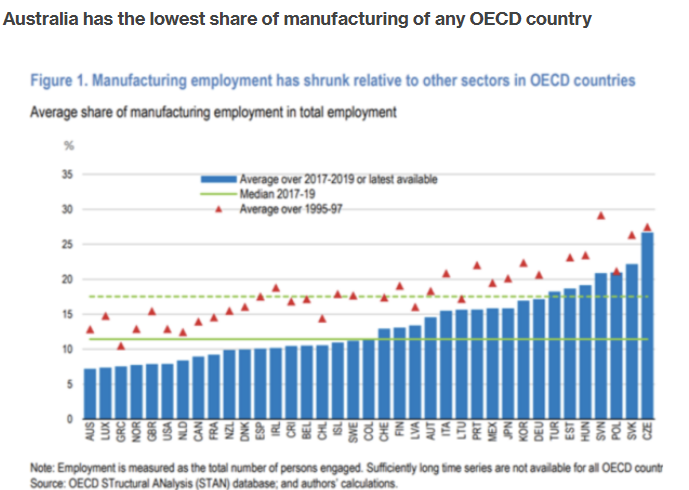
The United Kingdom, with its extreme focus on achieving ‘net zero’, stringent restrictions on fossil fuel energy use, and rising energy costs, serves as a warning to Australia about the potential consequences if it fails to address the energy market.
All energy-intensive industries in the United Kingdom have contracted heavily, turning the nation into an industrial wasteland.
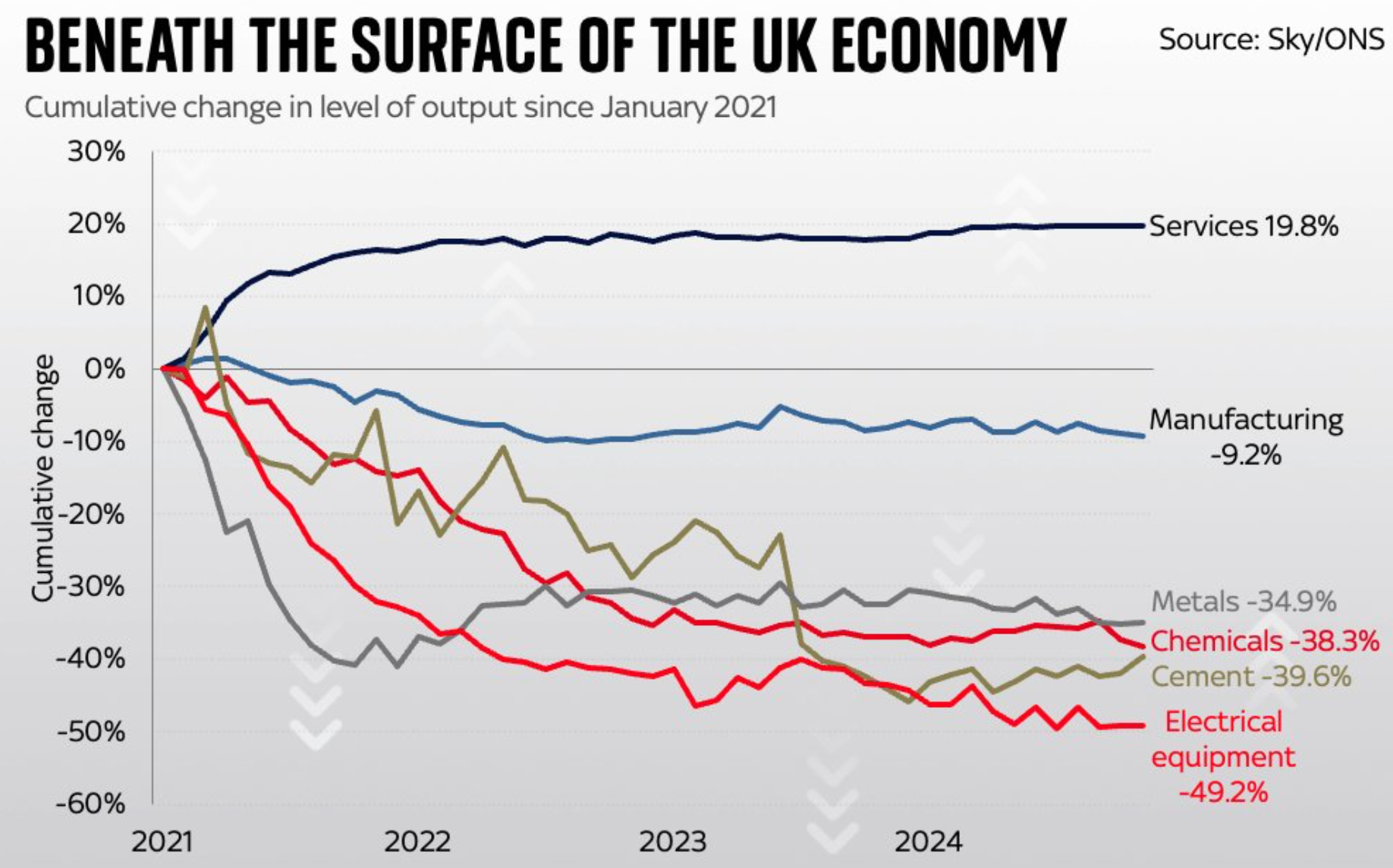
The same deindustrialisation is happening in Germany, following similar “net zero” policies.
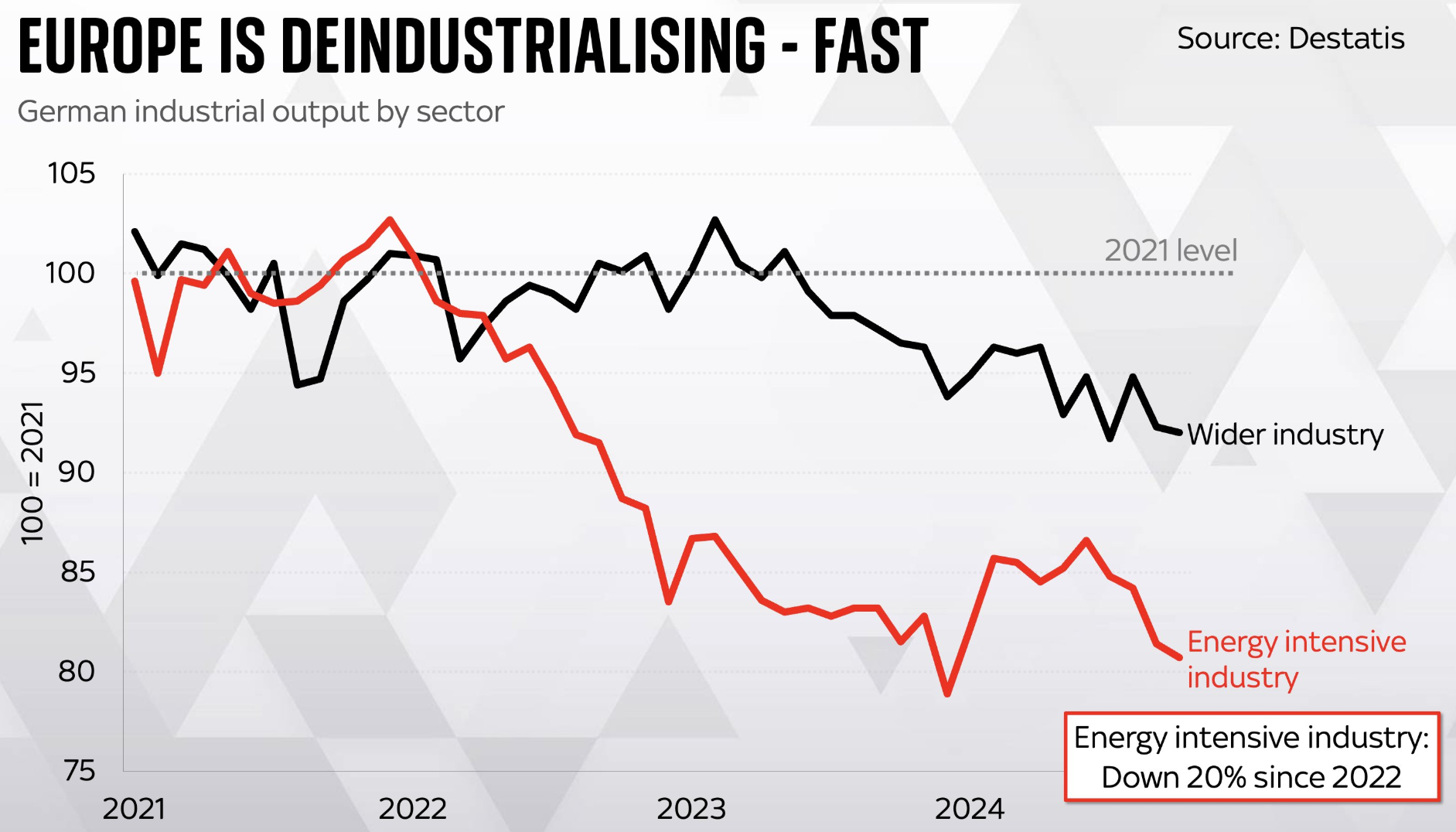
Meanwhile, this industrial activity and energy use is being shifted to China, driving the rise in global emissions, primarily via burning coal.
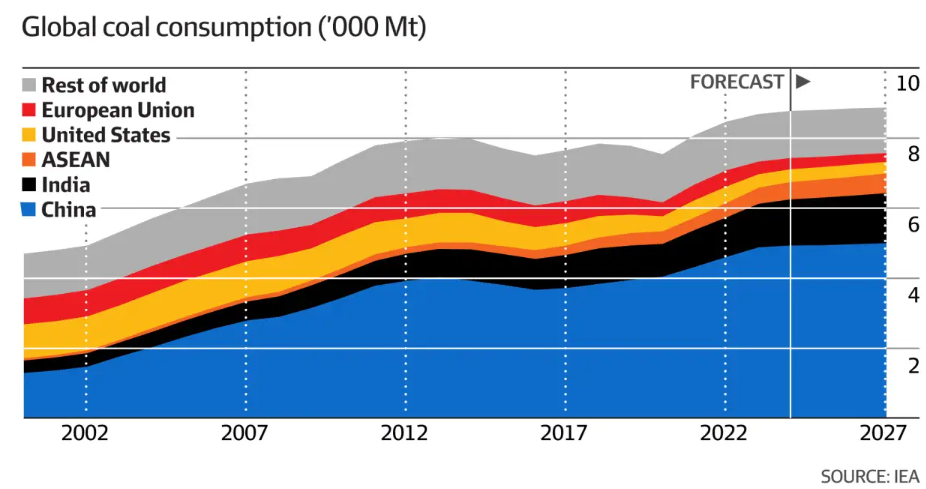
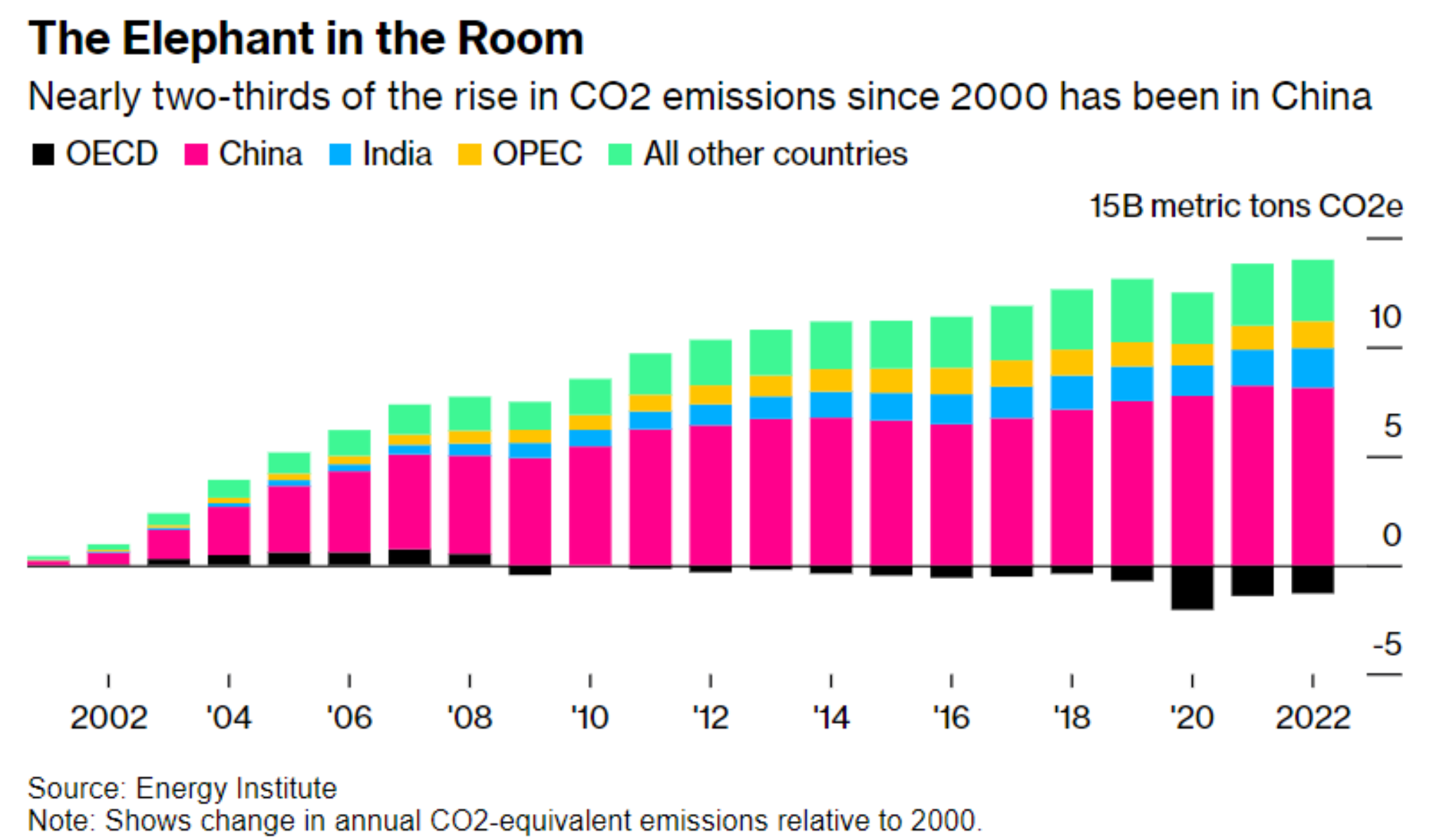
The Australian government must follow the Trump Administration and prioritise domestic energy security and affordability above anything else.
Australia has one of the largest stocks of coal and gas in the world, so why not use it ourselves instead of exporting to China to use instead?
Reliable and affordable energy is the bedrock of a prosperous and modern economy.

